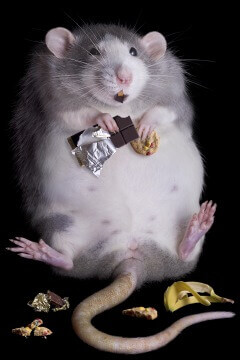Factors in Addiction

We are all quite aware that addiction is an issue that affects several individuals, families and societies each and every day. Statistics from 2012 highlighted the fact that 23.9 million Americans had used or abused an illicit drug. This demonstrates an increase of 8.3% since 2002. However it is perhaps the cause of addiction that we should be concentrating on; we can then work to prevent it rather than trying to cure it. In my opinion there are three reasons for addiction; our genetics, our environment and one that we strangely forget about, drugs. We ask the question why am I addicted, why is my partner addicted, why do so many people in my family suffer from addiction. When you take the three potential causes of environment, genetics and the substance in to account, then the likely hood of addiction in a family or a society is extremely high and becomes much less surprising.
Genetics, Environment or both?
Addiction does not discriminate and can affect both sexes from a variety of backgrounds and social classes. That said there are external factors that can make an individual more susceptible to becoming addicted to a particular substance. For example if an individual has had extensive exposure to drug or alcohol use, then for them it’s use or abuse can be normalized. Should an individual associate with a social group that encourages drug or alcohol use they are more likely to experiment, and it is through this experimentation that we become vulnerable to addiction. I believe that it can be seen as a pattern and the causes are often very much linked; your environment can determine whether or not you try dugs, once the drug is in your system and you have experienced the high on a few occasions this is where your genetics can potentially play a role. Not alone are certain substances highly addictive in their chemical makeup but as an individual due to genetics you may be more predisposed to addictive behaviors. Our genetic makeup is inherited and if addiction is prevalent in your family, there is a very strong possibility that an element of addiction is in your genes. So trying a drug once might not be enough; I drink alcohol but on many occasions in my life I have had the opportunity to “try” a variety of drugs. I have always said no; addiction is a huge issue in my family and I am acutely aware that because of this I am at risk of addictive behavior. I have not become addicted to alcohol but would still avoid illegal drugs due to the intensity of their addictive properties; I don’t think the experiment is worth it.
There are differing views and ideas about what causes addiction, however numerous studies suggest that both genetics and environment play a role. I think that equal weight needs to be given to genetics and environment. When we examine the potential influence of both, we can gain a better understanding of how they affect someone’s propensity to become an addict. For example studies show that children of addicts are eight times more likely to develop an addiction than those without addicted parents. This could be attributed to genetics but it may also be due to the fact that living in a home with addiction is highly stressful, chaotic and dysfunctional, and can cause long term problems for the child in their future life. Issues that may arise as a result can be anxiety, depression, in addition to a wide range of other mental health difficulties. Often initial drug or alcohol use is a means of coping with other difficulties in a person’s life, this could also include painful memories or stressful current events. Genetically scientists work to identify addiction genes; there is a belief that it can be inherited as often addiction runs in families. Testing of DNA in families can show commonalities among those who suffer from addiction and those who don’t. The genetics argument refutes the theory that addicts have poor will power or are weak in some way. Scientific research has shown that the chemical reactions in the brain of an addicted person differ significantly from someone who is not addicted. In this cases some people are less susceptible than others to become addicted to a particular substance due to the chemical makeup of their brain and DNA overall.
The role of Drugs

Another factor that must be considered is that some drugs are more addictive than others, for example nicotine which is the addictive chemical in cigarettes. It is a highly addictive substance and this is represented in the number of people who are addicted to cigarettes in the U.S.A at 40 million in 2012. Despite the level of addictiveness many would consider this drug to be soft or light, that’s because it’s socially acceptable to light up a cigarette as opposed to inject heroin in a bar or club. Other drugs that are highly addictive are drugs that are classed as stimulants; someone who could be lucky enough to try cannabis or alcohol and dodge the bullet of addiction may then go on to try cocaine or methamphetamine, in which case they have a much higher risk of becoming addicted.
Environment more of a factor than we think – Experiments on rats
Interestingly while I believe that we should give equal consideration to all of the causes above, an experiment undertaken with rats demonstrates the significance of the drug and the environment when it comes to addiction. The experiment had a rat in a cage with two bottles of water; one of them is laced with either heroine or cocaine. In the experiment the rat always became obsessed with the drugged water and kept coming back for more until fatal. Professor Bruce Alexander wanted to broaden the spectrum of this experiment; he thought that rather than the rat being alone in an empty cage with nothing else to do but take the drugs, why not try a new approach. He created a rat park with several ways the rats could keep themselves entertained with lots of company. The two water bottles were added to the park, one with just water and one with drugs added. The rats in the park did try the drugged water, but obviously didn’t know there was a difference in the two. The rats in the happier more active environment used less than a quarter of what the isolated rats used and not one of them died. So in spite of ingesting a highly addictive drug, the happy, active and entertained rats had very little interest in the drugs and did not become addicted.
This influence of environment undermines the genetic argument, as it can hardly be coincidental that not one rat in the park became addicted. It even undermines my initial feelings that drugs themselves cause addiction; the rats tried them but because of their surroundings had no interest in using them on a continuous basis. This highlights the vast influence that environment has on additive behavior. While we cannot necessarily control the environment we grow up in or the external factors around us at any given time we can work on ourselves and our coping skills. Being strong mentally and enhancing our coping skills can help us to overcome life’s challenges without turning to drugs as a crutch.
Conclusion
We all have the potential to become addicted, for example we can all relate to eating or drinking too much, even if it doesn’t make us feel good, the desire to continue doing it is usually because at the time it feels good. I think the reality is that we start out with the potential to become addicted to a variety of substances; it is our life’s journey in many cases that will determine whether or not this actually happens. Once we know we are at risk we can take steps to ensure we do not become addicted. This may be overly optimistic, but if people are educated and aware of the potential risks and understand that their actions and behavior make help in preventing addiction then we can hope that they can take steps to stay clean and healthy.
This excellent Video shows Mile O”Brien, under the influence to determine the prevalence of genetic influence on addiction.
Sources:
http://www.mayoclinic.org/diseases-conditions/drug-addiction/basics/risk-factors/con-20020970
http://www.addictionsandrecovery.org/is-addiction-a-disease.htm
http://www.ncbi.nlm.nih.gov/pmc/articles/PMC2715956/
http://www.huffingtonpost.com/johann-hari/the-real-cause-of-addicti_b_6506936.html
http://www.drugabuse.gov/publications/drugfacts/nationwide-trends
http://www.healthline.com/health/addiction/risk-factors#Genetics2
